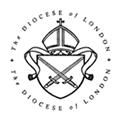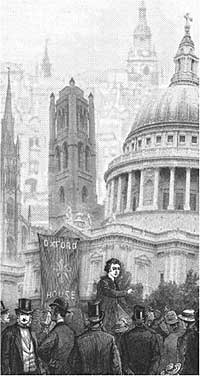Oral History
How to use Oral History
By interviewing people who have memories of the past or who retain recollections given to them by members of older generations we have a potentially very productive way of discovering and preserving the history of parish congregations and communities. The description usually given to this process is ‘oral history’. By conducting interviews with long-standing members of churches and communities we can add significant dimensions to our understanding of the past.
Importantly, oral history can allow the researcher to go beyond the ‘who, what and when’ often described in historical documents (for example, parish magazines, letters or PCC minutes) and enable the researcher to engage with real people to find out ‘what was it like?’ Oral history can enable the researcher to obtain invaluable insights into parish and community life, providing, for example, information on church leaders, events, services, styles of worship and mission.
Oral history can be lots of fun for the researcher, a great way of involving others in the research process and an invaluable means of preserving and remembering the history of the church or congregation.
Benefits
- Oral history can often ‘fill in the gaps’ – providing useful information that written sources don’t provide.
- It can tell us about people who aren’t mentioned in the ‘standard’ sources – for example, long forgotten members of the laity.
- It can bring history to life – giving insights into the life of the church and community, how it functioned and how people felt.
- It can be a great way of involving and valuing longer-standing members of the community.
- It can be a communal enterprise – giving ownership of the process of researching the history of the church or community to a wider group of people.
Potential Pitfalls
(“The most naïve policeman knows that a witness should not always be taken at his word” – French historian Marc Bloch).
- Memories are rarely devoid of opinion – remember that all testimonies are subjective. For example, a person may have had a personal like/dislike for a vicar/lay leader in the church that unfairly represents that individual.
- Beware nostalgia! People will often have a ‘rosy’ memory of the past. In some cases it might be that dissatisfaction with the present situation in the church or community will result in an individual recalling a past ‘golden age’ (‘the church was always full’, ‘people preferred the services back then, ‘everybody enjoyed the music’!).
- Remember the fallibility of the human memory. Not all recollections will be entirely accurate, and some may actually be misleading.
Oral History Advice
Although it is important to be aware of the potential pitfalls described above, oral history is still an excellent way of finding out information about a church or community. Here are some tips:
- You might already have some long-standing members of a congregation in mind as potential interviewees. If not, it could be worth making enquiries at an old persons’ lunch club, or putting up a notice in a church, local library or newspaper, or perhaps contacting a local history society for ideas.
- Interview as many people as reasonably possible rather than relying on the recollections of one or two individuals. By speaking to more people you should be able to piece together a more accurate understanding of the past.
- Prepare you questions in advance. It might even be worth giving the interviewee a copy of your questions a few weeks in advance to that they have more time to reflect.
- Know your stuff! Oral history is often best used to fill in gaps in knowledge. It can be useful to put together a timeline of the church’s history beforehand, with details on clergy, significant events in the life of the church or community, building projects etc. so that you can ask more focussed, appropriate questions.
- Choose your interviewees carefully. Try to find people who communicate well (good storytellers are often invaluable) and who have a supportive interest in what you are doing.
- Aim to achieve a good balance between the general and the specific in your questions. Your questions should be focussed enough to ensure you find the information your need, but not so specific that they inhibit the interviewee. For example, you could ask questions like: ‘What are your first memories of church life?’, ‘what was the church building like when you first attended?’, ‘what was a typical Sunday service like?’
- Avoid asking leading questions. You may already have built up a historical picture about the church or an individual, but don’t allow this to colour your questions. For example, don’t ask questions like ‘was the church always full in the 1950s?’ or ‘is it true that Rev X was the vicar who led to the church’s resurgence?’
- Include open-ended questions. These will sometimes result in surprising or valuable nuggets of information. For example, consider questions like ‘how did you feel about going to church’, ‘what were your impressions of life in the church school?’
- Let the person talk. Don’t interrupt or ask too many questions – the aim should be to stimulate the individual and allow them to speak their own minds.
- Use an audio recorder. You will probably benefit more from the interview if you are not scribbling down notes.
- Copyright and ethics. You may wish to consider legal and ethical implications of your interview. If so, a good place to start is www.ohs.org.uk/ethics/
Useful Links






